An Analysis into Screen Adaptations
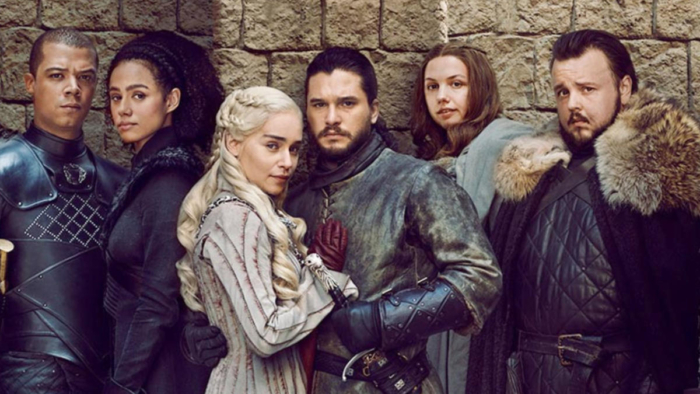
As the count of screen adaptations arise, many fans of literature are on the edge of their seats, awaiting their favorite series to be turned into a movie/TV series. The experience of connecting with fictional characters through the telling of their experiences, whether heartbreaking or joyous, creates a bond that motivates a reader to follow the series to a film. Once it is adapted, it can skyrocket in earnings and views, or plummet and fail miserably, and it can be heartbreaking for both loyal readers and directors as well.
However, there is no direct formula or checklist for creating a successful screen adaptation; since, I’ve pondered and compared 4 film/TV series adaptations that were undoubtedly successful, and others that unfortunately were not. Through a broad look at The Twilight Saga, Percy Jackson & the Olympians, The Mortal Instruments: City of Bones, and Game of Thrones the requirements for a successful screen adaptation will be sought for.
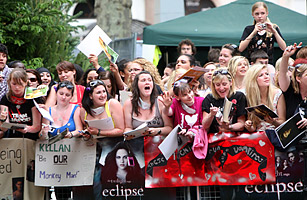
The films/series selected have a few things in common besides originating from books. They’re all fiction, and most importantly had a humongous fan base even before being considered for adaptations. All of these book series are best sellers, with millions in sold copies and were the inspiration of other authors, fan fictions, and now the film industry. In most cases, like with Game of Thrones or The Twilight Saga, the film adaptation pleased the existing fanbase and catapulted an increase in the number of fans. On the other hand, The Mortal Instruments: City of Bones and Percy Jackson & The Olympians are examples of the frustration of existing fans as well as the lack of interest of a possible new audience. Here I’ll be opening this discussion by analyzing the different takes in translation from literature to the screen, and the result in numbers.
Be advised that this article contains spoilers for Twilight, Percy Jackson, The Mortal Instruments and Game of Thrones.
The Twilight Saga
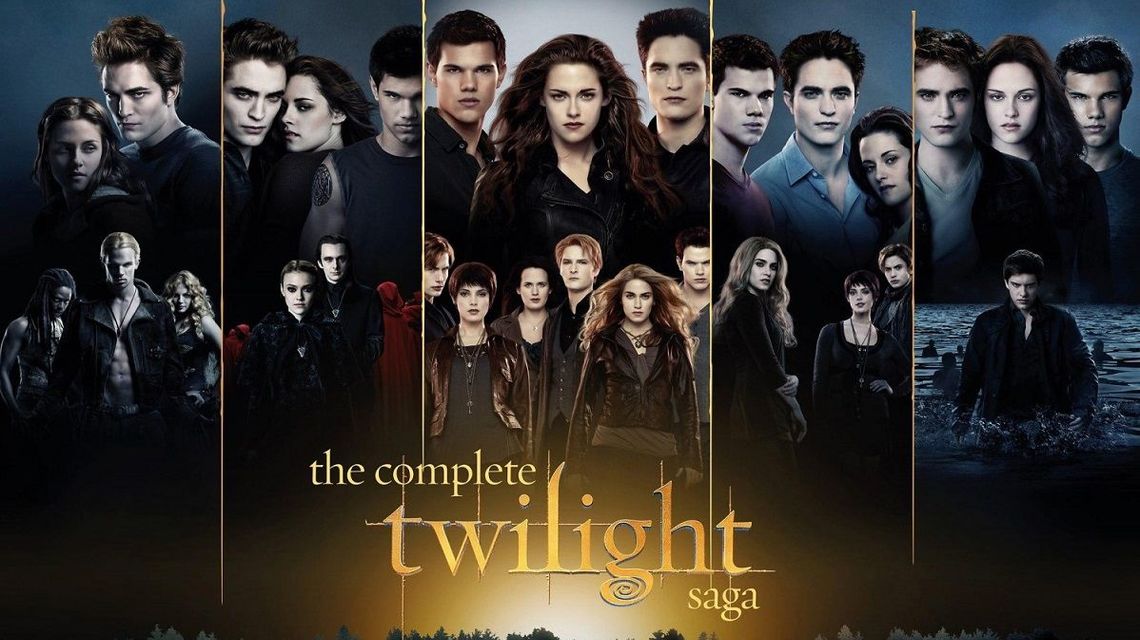
Based on Stephanie Meyer’s 4-book series of the same name, The Twilight Saga directed by Catherine Hardwick (1), Chris Weitz (2), David Slade (3), and Bill Condon (4-5) stars Kristen Stewart, Robert Pattinson, and Taylor Lautner 1 The story is centered around Bella Swan’s return to Forks, Washington, coming across the Cullen family, and sparking a relationship with Edward Cullen: “Edward warns Bella that she should leave him, but she refuses to listen and to understand why he is saying this. Bella learns his secret. He is a vampire; however, she is not afraid of his blood-thirsty needs and the fact he could kill her at any moment. Bella is afraid of losing him, the love of her life.” 2 Throughout the series, Bella and Edward attempt to maintain their relationship despite obstacles surrounding their differences as vampire and human.
A major point linking the film to the books is that the series remains fairly accurate to the original text. As mentioned, Meyer’s The Twilight Saga had a large fan base prior to the films, and instantly, the first film gathered $392.6 million worldwide at the box office 3, clearly showing the support of its already existing fans. When comparing the films to the text, the changes made to any of the films were minor, keeping the backstories in forms of flashbacks and in a fairly similar sequence of events.
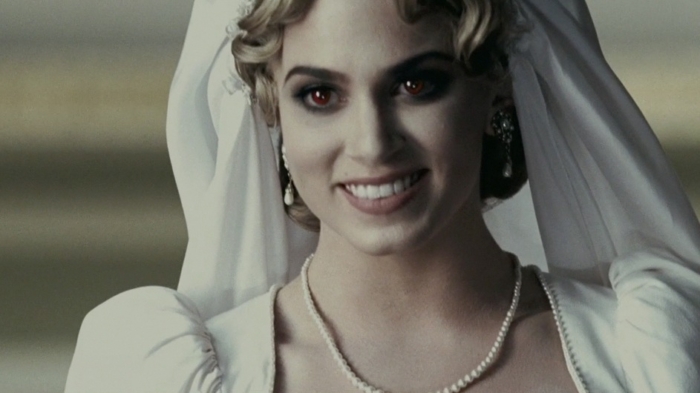
Summit Entertainment and the directors of the film wrote the films to be exactly as pictured by Stephanie Meyer, even having her as one of the producers, creating a consistency between the already existing fanbase and newer fans. This made the film clear in their target audience, and extremely successful, serving as an extension of the existing story rather than a new entity shooting darts at a hopefully loving new fan base.
Many critics arose from this series, criticizing the book/film cliché, antifeminist, and as concluded by The Guardian’s author Kate Muir, “looked at through the lens of the #MeToo generation, there is something to be said for a boy who is not pressuring a teenage girl to have sex. Although it’s worth remembering that although Edward looks 17, he is, in fact, 109 in vampire years… Silverstein also points out that ‘women were angered by Edward’s overprotection and Bella’s acquiescence. Where is her independent streak with Edward that she displays so fervently with her father and friends? Let’s also not forget that Edward watches (some sites have used the word stalk) Bella sleep in her bedroom’.” 4
However, I’ve come to think that what the directors of Twilight (2008) did right above all was to specify their audience. They never meant to please adult women/men, feminists, or to portray a healthy relationship between healthy people. It may be that their target audience, later known as Twihards, which consisted of teenage girls and “Twilight moms” 5 felt enamored by the portrayal of Bella Swan and Edward Cullen’s Romeo and Juliet codependency and obsession. By catering to Twilight’s already existing fan base, it only grew further, which can be seen in numbers as the films went on.
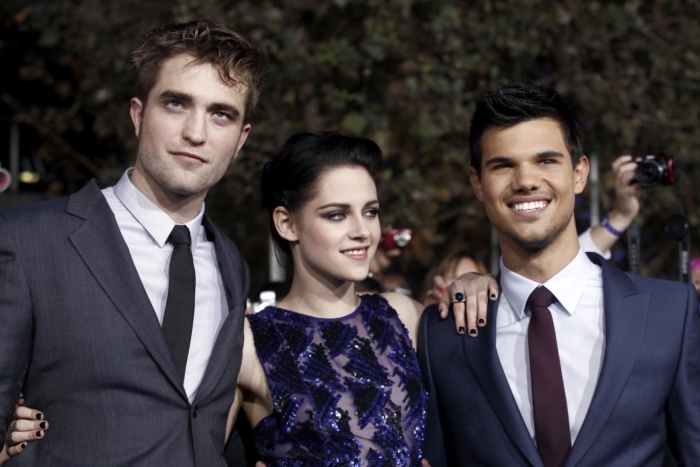
Twilight (2008) was the first of the 5-part film series and gathered a box office of $402 million, and ended with the film’s series finale The Twilight Saga: Breaking Dawn– Part 2 (2012) with $829 million. 6 In total, The Twilight Saga amassed $3.3 billion in the small amount of five films. 7
Percy Jackson & the Olympians: The Lightning Thief
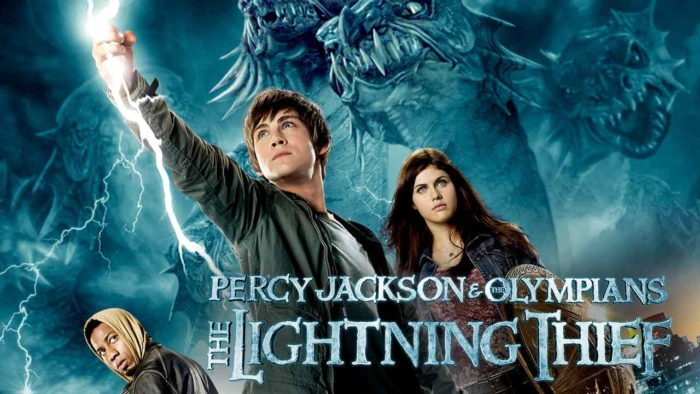
The Lightning Thief first published in 2005 is the first of Rick Riordan’s Percy Jackson & the Olympians book series. The movie adaptation titled Percy Jackson & the Olympians: The Lightning Thief directed by Chris Columbus starred Logan Lerman, Alexandra Daddario, and Brandon T. Jackson. 8 Rick Riordan’s book is based on Percy Jackson’s journey after discovering he’s a half-blood; a half mortal, half God, more specifically the son of a woman and the Greek God Poseidon. In the series, he and his friends Grover Underwood and Annabeth Chase go through a series of challenges that became a refuge of literature to many children.
I should begin by addressing the elephant in the room for anyone who’s familiar with both the book and the film adaptation. It was immensely disappointing, to many Percy Jackson fans, when the take on an immensely adored book was rather inaccurate. To give perspective, Percy, Annabeth and Grover are middle schoolers, so around 12 years old. However, in the film, the actors are grown-ups in their late twenties-early thirties playing high schoolers. When comparing the book and the film, it is still considered an adaptation, but some may argue it is a very loose one. The existing fans were alas disappointed, and their interest in another sequel plummeted just as fast as its box office, since Percy Jackson & the Olympians: The Lightning Thief was already so far off the original story of Percy Jackson.
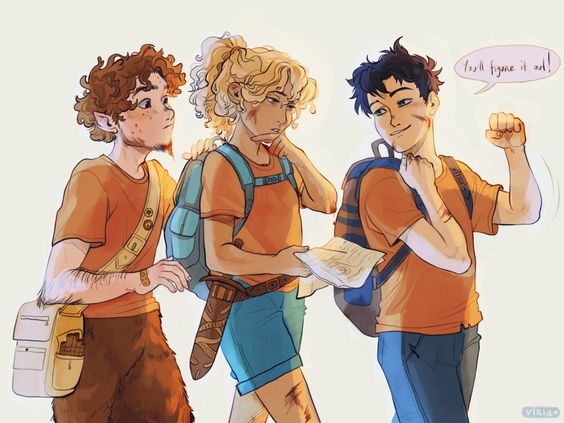
Since the original audience of The Lightning Thief lost interest in another sequel of the book’s telling of Percy’s story, a newer audience was hard to get. The film adaptation’s target audience is a mismatch of children but also adults; since it does not exactly target the children who’ve read the story, adults or older fans of Percy also have difficulty with the concepts for children. It seems for this one, the director threw a dart at a target audience, and missed the preexisting fans as well as new ones. Though the film was not a total loss, with a budget of $95 million and box office of $223 million worldwide 9, it seems like a gain, though not to its full potential. The sequel, Percy Jackson: Sea of Monsters (2013) also had a similar budget and had worse results than the first movie. 10
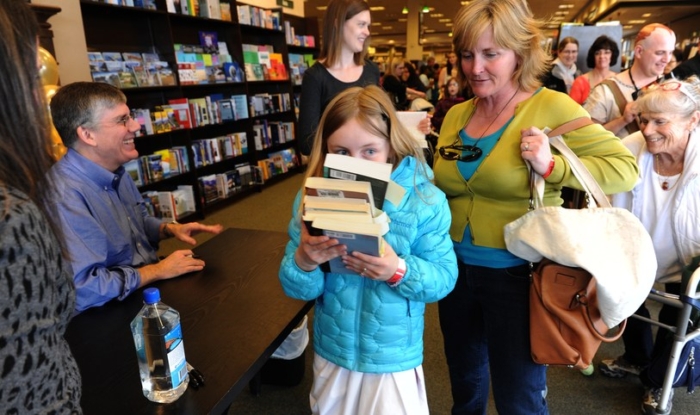
Rick Riordan, author of the Percy Jackson & the Olympian series, posted this on his website about the film, and why it failed:
I’ve spent the last four years touring the country, talking about the movie. I’ve seen hundreds of thousands of kids. They are all excited about the movie, but they are also anxious. Most of these kids have no idea which studio produces which film, but everywhere I go, they say the same thing: Please don’t let them do to the Lightning Thief what they did to XXXX(another movie from the same producers)Don’t let them change the story. These kids are the seed audience for the movie. They are the ones who will show up first with their families, then tell their friends to go, or not go, depending on how they liked it. They are looking for one thing: How faithful was the movie to the book? Make Percy seventeen, and that battle is lost before filming even begins. 11
The Mortal Instruments: City of Bones
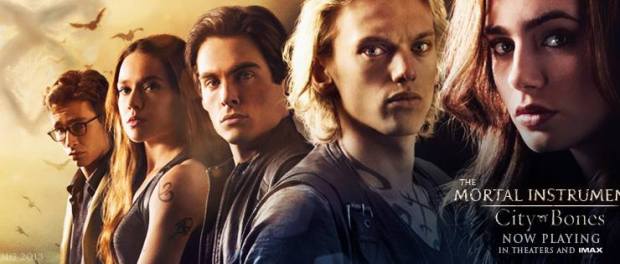
The Mortal Instruments is a series composed of 6 books written by New Yorker Cassandra Clare between 2007 and 2014. The film adaptation, The Mortal Instruments: City of Bones is an adaptation of the first book, and was directed by Harald Zwart starring Lily Collins, Jamie Campbell Bower, and Robert Sheehan. 12 The film as well as the books’ premises consist of Clary Fray (Lily Collins) discovering upon her mother’s kidnapping that she is the daughter of Shadowhunters: a hidden specie part human part angel that keep our world safe from evil creatures such as demons. Clary now must adapt to this new world that her mother hid from her by suppressing her memories, while also searching for her mother with the help of Shadowhunter Jace.
The Mortal Instruments: City of Bones is a case similar to Percy Jackson. The film adaptation was… somewhat accurate to the books: the events in the book happen, though not in the same sequence or portrayal as in the books, and some change entirely. There were also many scenes depicted differently, from description of the supernatural to how “things go down”, and also an acceleration of events. But most importantly, in my opinion, there was very little background of who was who and why does it matter, which all builds up and creates this sub-world so many fans adore. Some examples are: parabatais never get mentioned in the movie, we never get a real sense of Valentine’s relation to other Shadowhunters and the Shadowhunter world other than he’s just the antagonist, we are immediately told Jace and Clary are not related, Simon (Clary’s best friend) turns into a vampire way too soon, and Valentine gets tricked with the Mortal Cup at the end. Unfortunately, all these changes may have cost what could’ve been a successful film series.
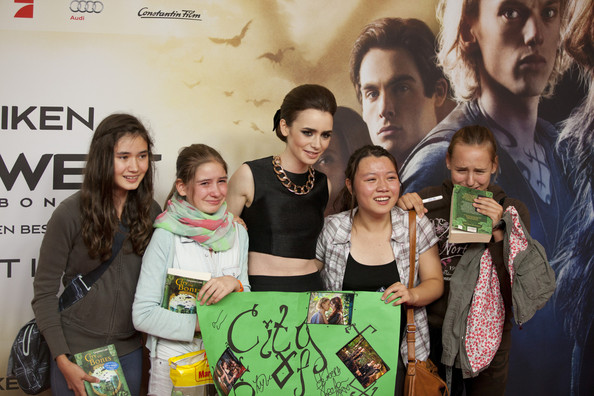
The target audience is more concrete than Percy Jackson’s, which is why I’d call TMI’s film adaptation a “grayer area”. However, if the target audience was the existing demographic for TMI’s loyal fan base, why change so many aspects in the film?
The movie adaptation, from a budget of $60 million, made $75.9 at the box office. 13 As it can be imagined, there was not a sequel.
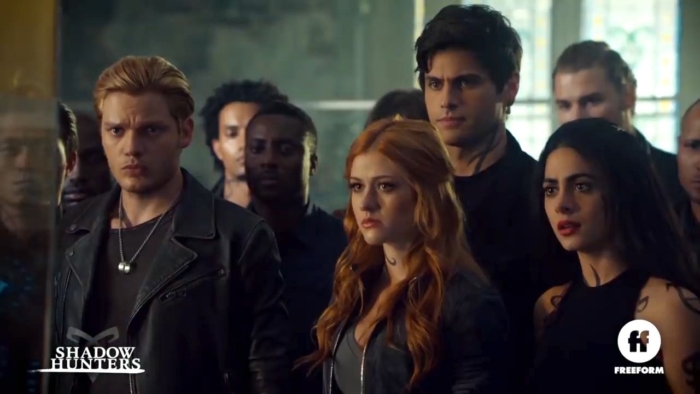
I’ll briefly mention another adaptation of The Mortal Instruments, a tv series called Shadowhunters: The Mortal Instruments (2016-2019) created by Ed Decter starring Katherine McNamara, Dominic Sherwood, and Alberto Rosende. 14 The series aimed for TMI’s audience and was successful for three consecutive seasons. However, prefixing my statement with a disclaimer, I personally observed that as the series continued and the events, scenes, and plot of the books were changed, so was there a decreasing interest in the series. Having The Mortal Instruments, which is a very multi-dimensional world be broken down into episodes was brilliant. The first season was fairly accurate to the books, but by the second season, much of the plot had changed.
Game of Thrones
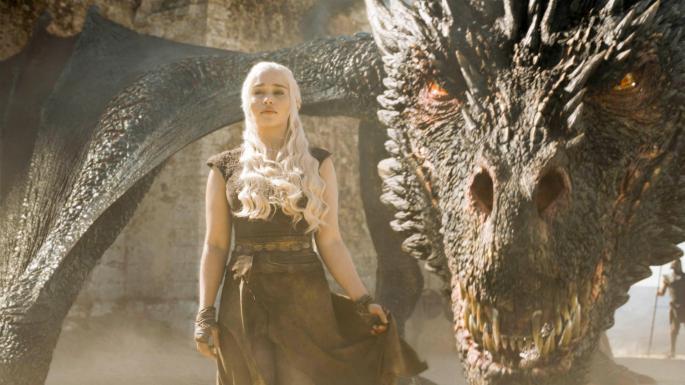
Based on George R. R. Martin’s A Song of Ice and Fire, Game of Thrones is a well-known TV series created by David Benioff and D. B. Weiss, also known as D&D. It stars Emilia Clarke, Peter Dinklage, Kit Harington, Lena Headey, Sophie Turner and Maisie Williams. 15 It is centered around Westeros, a fantasy world where whoever sits upon the Iron Throne becomes the ruler of the Seven Kingdoms, and Game of Thrones tells the tale of many points of views surrounding this game for the throne. Of course, there is more to it, such as the return of an ancient creature that’s been dormant for decades, but that’s part of Game of Thrones’ many dimensions.
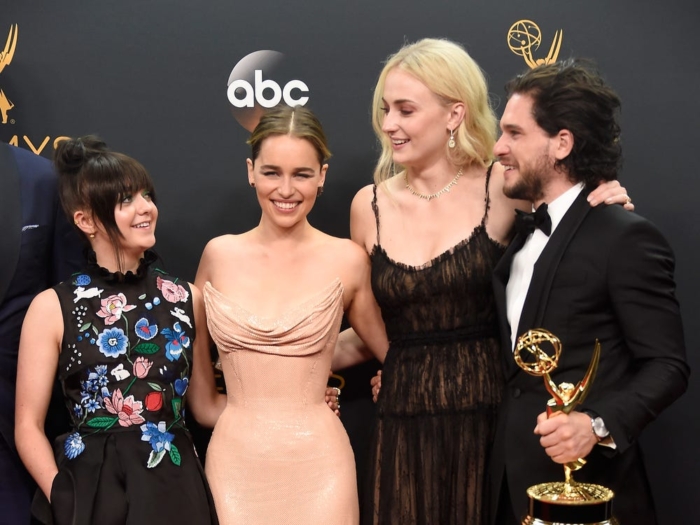
I include Game of Thrones as my last source to analyze the failures and successes of screen adaptations because it is one of the most, if not the most, successful translation of text to film. Regardless of whether one is a fan or not, it is commendable the amount of success in numbers and publicity that Game of Thrones has gathered over the years.
From season 1 to 7, the series adaptation of A Song of Ice and Fire has been fairly accurate, if not directly in tune with the books pacing, sequence of events, descriptions, et cetera. Of course, it is not an exact tell-a-tale of the books; there are changes in scenes and characters’ physicality, and not all of the background information of Westeros is revealed. But we get background of Westeros, the families, and we see them develop throughout the series.
I believe that, being accurate is not a necessity but perhaps screen adaptations “owe respect”, or a faithfulness to the fan base they’re presenting to. I think an example of this lack of faithfulness is Game of Thrones’ season 8. By season 5 (2015), D&D had to write the series without the guidance of the novels and George R. R. Martin acting as consultant. Without divulging into it too much and attempting to withhold my personal opinion on the season, without a book to go by and little input from George R. R. Martin (as well as his indecisive book ending), season 8 is David Benioff and D. B. Weiss’ telling of how Game of Thrones comes to an end.
In a shift of creation, we lost answers, character arches, more questions arose (where did Drogon take Dany?) and the fan base was left so frustrated that a petition with more than 1.8 million signatures for a remake of the season arose. 16
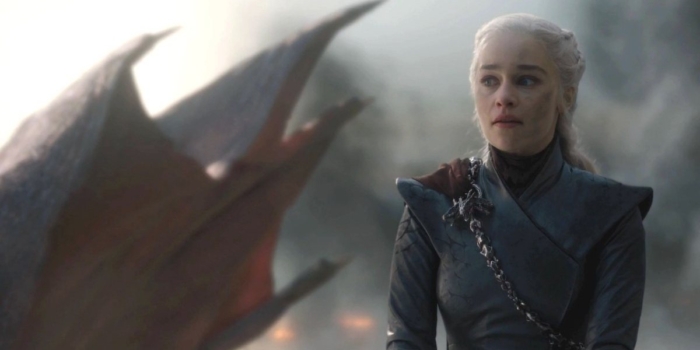
But overall, Game of Thrones was outstanding in catering to A Song of Ice and Fire’s target audience. Many call it a “pornographic series with a story” but A Song of Ice and Fire was intended for adults, so it’d be bound to have gory violence, some nudity, politics, scandalous plot twists, et cetera. And like Twilight, it delivered exactly what the already existing audience expected. CNN Business author Frank Pallotta wrote, “The viewership for ‘The Iron Throne’ [Game of Thrones’ last episode] includes 13.6 million people who watched the episode on HBO at 9 p.m. Sunday night, making it the most-watched telecast in the network’s history, according to HBO.” 17
While analyzing the subject of what truly encompasses a successful screen adaptation, the one factor I kept coming back to was the importance and power fan bases have. Regardless of how the films turned out at the box office, they gathered an audience the moment the books were chosen for adaptations.
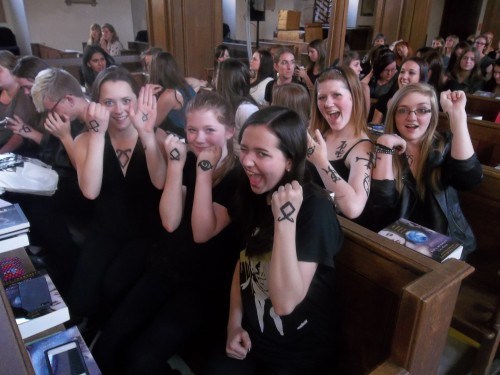
As Cassandra Clare wrote in her book Clockwork Princess, “One must always be careful of books, and what is inside them, for words have the power to change us.” 18 Indeed, words on books have transcended pages and expanded to on-screen media where it can change the lives of others. In this expansion, fan bases grow, and said communities grow larger, embracing different people connected by a loyalty or passion for a fantasy world that in hearts, are very much real.
Works Cited
- MBheee24. “The Twilight Saga | Film Series.”IMDb, 14 Apr. 2017, https://www.imdb.com/list/ls069069166/. ↩
- “Twilight.”IMDb, https://www.imdb.com/title/tt1099212/plotsummary?ref_=tt_ql_stry_2. ↩
- “Twilight.”Box Office Mojo, https://www.boxofficemojo.com/release/rl58099201/. ↩
- Muir, Kate. “Ten Years of Twilight: the Extraordinary Feminist Legacy of the Panned Vampire Saga.”The Guardian, Guardian News and Media, 2 Nov. 2018, https://www.theguardian.com/film/2018/nov/02/ten-years-of-twilight-the-extraordinary-feminist-legacy-of-the-panned-vampire-saga. ↩
- Marks, Lisa. “Lisa Marks: Twilight Spawns a New Film Demographic.”The Guardian, Guardian News and Media, 6 Nov. 2008, https://www.theguardian.com/film/filmblog/2008/nov/06/twilight-film-demographic. ↩
- “Box Office History for Twilight Movies.”The Numbers – Where Data and Movies Meet, https://www.the-numbers.com/movies/franchise/Twilight#tab=summary. ↩
- “Box Office History for Twilight Movies.”The Numbers – Where Data and Movies Meet, https://www.the-numbers.com/movies/franchise/Twilight#tab=summary. ↩
- “Percy Jackson & the Olympians: The Lightning Thief.”IMDb, 10 Feb. 2010, https://www.imdb.com/title/tt0814255/. ↩
- “Box Office History for Percy Jackson Movies.”The Numbers – Where Data and Movies Meet, https://www.the-numbers.com/movies/franchise/Percy-Jackson#tab=summary. ↩
- “Box Office History for Percy Jackson Movies.”The Numbers – Where Data and Movies Meet, https://www.the-numbers.com/movies/franchise/Percy-Jackson#tab=summary. ↩
- Riordan, Rick. “Memories from My TV/Movie Experience.”Rick Riordan, 16 Nov. 2018, http://rickriordan.com/2018/11/memories-from-my-tv-movie-experience/. ↩
- “The Mortal Instruments: City of Bones.”IMDb, 21 Aug. 2013, https://www.imdb.com/title/tt1538403/. ↩
- “The Mortal Instruments: City of Bones (2013) – Financial Information.”The Numbers, 21 Aug. 2013, https://www.the-numbers.com/movie/Mortal-Instruments-City-of-Bones-The#tab=international. ↩
- “Shadowhunters.”IMDb, 12 Jan. 2016, https://www.imdb.com/title/tt4145054/. ↩
- “Game of Thrones.”IMDb, 17 Apr. 2011, https://www.imdb.com/title/tt0944947/. ↩
- “Sign the Petition.”Change.org, https://www.change.org/p/hbo-remake-game-of-thrones-season-8-with-competent-writers. ↩
- Pallotta, Frank. “’Game of Thrones’ Finale Sets New Viewership Record.”CNN, Cable News Network, 20 May 2019, https://www.cnn.com/2019/05/20/media/game-of-thrones-finale-ratings/index.html. ↩
- “Cassandra Clare Quotes (Author of City of Bones).”Goodreads, https://www.goodreads.com/author/quotes/150038.Cassandra_Clare. ↩
What do you think? Leave a comment.











How do you suggest we review adaptations?
A review of an adaptation should give two different summaries: this is how it works as a film, and this is how it works as an adaptation. After all, an adaptation gets made partly because the success of the book has pre-sold the film to the audience, so the source text is an important part of the movie, even if it’s not the sole criterion on which the movie should be judged. I remember that Nabokov was very clear that Kubrick’s Lolita was not his Lolita – but he still recognised that the film was a much better Lolita than the super-literary 300-minute script Nabokov wrote himself would have made.
If the film adaptation is of a book as popular as Harry Potter, Lord or the Rings etc. then I think it is a cheating your readers if you review it without reading the source material as well.
Surely this is what the majority of readers/film goers will have done, and the main question for them is whether or not the film reflects the book that they loved?
With Harry Potter, personally I read all the books first, and have watched the films as they are released. The first three films I loved as they were very close to the books, however films 4 and 5 infuriated me as key elements of the plots (in my opinion) were missing.
I found the Half Blood Prince a little tedious as a book, so I found that I wasnt as critical with the film and actually really enjoyed it, despite it again leaving elements out.
However my children have watched all the films first and are only now reading through the books with me. Granted they have a child innocent view, however they love films 4, 5 and the Half Blood Prince as they are full of action and they don’t notice the flaws in the script. It is only now we are reading the books that they keep saying, why wasnt this in the film?
The reviewers job is to give people a snippet of the film to allow them to make their own decision about a trip to the cinema.
If you are familiar with the book, then the skill is to reflect on how successfully it has been adapted for the big screen, but also to pick out the singular merits of the film.
However, the review should comment on whether the film stands alone or not. This can then help those who havent read the book to decide on viewing the film or not.
A tricky task indeed but, in my opinion, you are better equipped to make a judgment if you have all the material at your fingertips.
Otherwise, you could find yourself a date who hasnt read any of the books, take them along to the screenings and then combine your views to make a 2 in 1 review.
A bit of work, fun, friendship and two opinions combined into one review 🙂
The Potter films are an interesting one – on the one hand, I think they’re very entertaining and they don’t exclude non-readers. As somebody who loves the books, I certainly enjoy them too and think they work as a film series in their own right.
On the other hand, having read the books I think a lot of important plot points get missed; possibly by necessity, given the length of the later installments. To take Half Blood Prince, for example – I understand why for film they wanted to limit the number of Voldemort flashbacks, but in the books what Harry learns in those flashbacks are the foundation for his entire game plan in the final installment. Yet in the film nothing was made of these points. The flashbacks were just kind of there giving some great visuals but not much being made of what Harry had to learn from them; “Voldie made some Horcruxes” was only one part of that. The titular mystery – who the Half Blood Prince is – also seems to lose much of the significance it’s given in the book.
Perhaps they really aren’t necessary for a film audience, but it seems a shame missing them out when Rowling is so gifted at weaving these elements together and making everything so mysterious as you go along but perfectly placed in hindsight.
It’s a tricky one. I think the most important issue for a reviewer to consider is whether it stands as a film in its own right. That has to be the primary objective for any filmaker, so make a valid piece of art/entertainment, regardless of the source material.
I think the extent to which the source material is relevant to the review depends on the relation of the film to the material. If it’s just inspiration for, the jumping off point for the writer/director’s own ideas, I don’t think it matters too much. So thinks like Benjamin Button, Stand By Me etc aren’t really adaptations of books, since by necessity the story needs to be expanded.
But where the film is intended to be, and billed as, an adaptation of a book, then I think the source material is relevant since it must be one of the filmaker’s intentions to adapt it well.
One that really bugs me, though, is Atonement, since it claims to be the adaptation but fails to really understand the central theme of the book, nor does it successfully translate those ideas into the medium of film, and I don’t think the idea works as well for a film as it does for a book. I don’t know whether that means it is a lesser film or a lesser adaptation or a bit of both.
With discretion.
I remember as a child reading Ghostbusters. It was a novel adaptation of the film. It was terrific; I was about 10.
I read The English Patient after seeing the film at the age of about 18. The book is largely self-regarding claptrap. That guff on the first page about a penis and a sea-horse is just toss. The film is similar but at least watchable as is everything with Kristin Scott Thomas and Juliette Binoche (although points lost for Colin Firth).
I read Pride and Prejudice before seeing the Keira Knightley version. I liked both.
The critical appreciation of one has really no connection to the other save from the person watching.
If you like football don’t go to the cricket complaining it is not more like the football.
Enjoy both; life is short.
Great analogy.
Good read. The primary factor for success is the talent of those involved regardless of how faithful it is or otherwise.
I have a new form of media. It’s called a Movel. It’s like an e-book, but portrayed by actors with a narrator and dialogue. The text is completely accurate.
I love this.
A difference between film and novels. Time restrictions. Novels don’t have this problem at all. They can be as long as they want to be. Not so with film. Film has to be constrained to a 2 1/2 hour time limit at most. Therefore, content WILL be cut.
Good read, I find it hard to adjust from a well cultivated novel to a film adaption. but I will make an exception on Francis Ford Copollas The Godfather which in my opinion boasted a much more sophisticated adaption in comparison to Mario Puzzo’s novel.
An enjoyable essay. Whenever I see a movie that is based on a book I read, I think about how it was adapted for the screen and changes made. Again, enjoyable to read and think about.
Good points made. I think that as a reader it’s inherent that there will never be a completely accurate novel-movie adaptation. However, I find that it becomes less engaging when it’s more apparent. If the movie producers take out a major plot point or change something along the way, it surprises everyone, especially those who are coming in having read the novel first. For example in Shadowhunters, they had killed off characters that were never meant to die or had no reason to, sloppily making it a part of the plot for one mere episode. It felt like they were going for shock value, and they succeeded: Nobody saw it coming. It did, however, close many doors for future plot foundations. If the character was unimportant, it doesn’t matter. But if it changes major narrative features, that’s where people find problems.
I read the Twilights books and saw half of the first film and all of the second. I agree that the films followed the books closely.
One of my favorite adaptations is Thank You For Smoking. By rearranging the order of some scenes, and a few minor changes, Jason Reitman managed to change it into a completely different story with a different moral and more interesting characters. You might not think that would make for a great adaptation, but it’s honestly more enjoyable than the book
Interesting topic. Makes me thing of Hunger Games. The Hunger Games movies are actually pretty good adaptations because of certain decision they made. No monologue which actually put the pressure to make Katniss a dynamic character (though she is fairly dynamic so maybe that wasn’t too risky).
Words and images work in a yin & yang like cycle; images are a visualization of certain word descriptions and words are used to actively describe some kind of visual outlook. Films and novels sort of operate the same way as films need to have a screenplay to get an idea of how it should look and an author needs to visualize an event unfolding in order to put it into words and draw readers in.
Now if only people still read novels, poetry or essays…
A good director knows that an adaptation should take great artistic liberties in turning a reading experience into a cinematic experience. I hate it when directors try to remain “loyal” to the source naterial. The novel should be nothing more than a frame for the story world. I personally don’t go to see an adaptation, just to have the director “copy” the novel into a different medium. If that was the case, we wouldn’t need script writers. We’d just use the novel as the script.
One thing I find interesting is reading a book after seeing the film adaptation and seeing how faithful it is – or isn’t. Children of Men springs to mind as an example of a book I read after seeing the film, only to be quite surprised at how different (in a good way) the film had been.
The one thing I have never understood is why filmmakers bother making an adaptation if the resulting film is going to be barely recognisable to readers of the book. If you have to change *that* much of the source material then obviously you’re trying to tell a totally different story – so what was the point of paying all that money to option it in the first place?
I’ve found in a couple of screen adaptations that the loss of thoughts from the pov character(s) allowed me to better understand other characters.
In the first book of Game of Thrones I sided with the Starks a lot more and despised the Lanisters because you get in the Starks’ heads. In the show, not having that emotional insight made me far more annoyed at some of the Starks. Meanwhile, since you’re not seeing the Lanisters through the Starks’ eyes it’s easier to see that they do the bad things they do to protect those that they care about.
Ender’s Game as a book had me far more outraged about Ender’s abuse and isolation. I got almost none of that from the movie but when I read the book I was still so upset about Ender’s treatment even at the end that the genocide of an entire species didn’t affect me beyond the emotional damage it did to Ender. I was in Ender’s head, so he was what I was concerned about. With the loss of that in the movie the most heart wrenching part became the genocide.
I like when adaptations use the loss inherent with a change in media to illuminate something you may have otherwise missed.
By Kubrick’s masterful eye for direction, his adaptation of A Clockwork Orange really did the book justice in my view
I have a huge imagination. Ever since I was a kid, I have created universes that are filled with potential stories and characters and I just don’t know how to show that off to other people so they can experience it along with me. Do I write a novel where I can create this entire world with no limit on budget or actors or equipment just writing? Or do I have a visual for my mind’s creation with actual people in costumes with sets and use film, like a painting, as a canvas? I have ideas for Tolkien-esque fantasies, Marvel/DC sized superhero action, Clint Eastwood Rootin-tootin character-oriented westerns, Stoker/Universal gothic monster horror, and even some George Lucas Trekkie sci-fi. It always comes down to the format though. Do I write a novel or a film? Heck I want to create series that allows for expansions of lore with characters going on one after the other adventures. That brings up the question of a series of books or Television series. What should I do?
When I am unfortunate enough to listen to people telling me that ‘the original manuscript is far superior to this popcorn trash’ I normally assume that the person is trying to make me feel inferior. It has little to do with objective assessment and everything to do with the hierarchy of differing aesthetic media.
I did a screenwriting course and we were told that writing a book is easy in comparison and having attempted both I would say this is true. Credit to those who can adapt novels to screenplays and keep the essence of it all (Emma Thompson springs to mind for starters). I personally hate it when I love a book and then see it adapted to screen as something different but I think I have to park my personal preferences on this one and see the film in its own right. Difficult for me as I read The Time Traveller’s Wife and frankly would never have attempted a screenplay. The latter could only ever take one angle (here the romantic one) to work.
Can you imagine if film goers read the scripts of movies before going to the cinema? You’d still have 90% of film goers coming out afterwards whilst saying “I thought the script was better”.
I think this a very useful marketing analysis for the modern movie. I do think that it is limited in scope to modern movies that have a large, devoted fan base. Movies adapted from books that don’t have this kind of fanbase are less apt to encounter a problem from deviating from the original work. “True Grit (1969)” springs to mind, in that the happier ending found itself at odds with the more macabre ending in the book. If anything “True Grit (2010)” was truer to the literature.
I personally wouldn’t consider fans as having power over a studio, but rather more as influence/input as the most realistic, and soft power at most. The studio still makes the movie, so all power does belong to them. They ultimately choose to go along with the fan base, try to create a new one or take a loss or marginal gains and do what they want altogether. Having said this, you are showing that there is much to be said about the prudence of a film studio in respecting an original work and ultimately its fan base in accommodating the author’s specific artistic vision, particularly when you have a fan base as you have described. It reminds one of the saying, “Vox populi vox Dei.” I enjoyed the piece. Nice job!
I hear so many people complain that the film didn’t stay true to the book or or that books are better than films or vice versa but isn’t what it’s about. I think of the Harry Potter films. I was disappointed by them. As a teenager I found the books riveting but I hardly rate the films at all because I don’t feel they did a good job of conveying Harry’s thought processes and feelings or much of the atmosphere and emotion for that matter although I’m tempted now to watch the films and give them a second look… in the first film’s defence though, I did really like the scene in Ollivander’s wand shop. I feel they conveyed that perfectly.
Adaptations are tricky things, there is no one road to success. The Shawshank Redemption sticks tightly to the subject matter and is a arguably better than it’s source material, but then so is Blade Runner, which uses the book as a mere jumping off point for entirely different themes.
I think it’s possible to make a poor adaptation that still works as a movie independent of the book. If you have an “adaptation” that appears totally unrelated to its source material then it usually means the point of the book was either totally missed or wilfully ignored, but that doesn’t necessarily preclude the filmmakers from telling an interesting story; it just wouldn’t be the story it was advertised as being! In that event, if I was reviewing I’d warn people to put the book right out of their minds because they’d be seeing something different.
What about sequels? Should previous instalments be considered or ignored?
There should be an article on the problems that come with making a movie adaptation of a video game.
Maybe I’m just naive, but I don’t quite understand what is the point of adapting a book – or another media – on screen if you don’t respect the original source.
Of course, in a screen adaptation, there will be cuts due to length issues and the director (and screenwriters, and actors, and…) still have creative liberties, which is a great thing. To me, there is nothing better than going to see a movie, and find in it everything you loved in the book, but also something more, something that adds to the reading experience without betraying the original source.
I think that is all the difficulty of adapting a book on screen, as you have to identify and then extract and keep and then render the essence of the original source, before adding, cutting or modifying anything. And if you can’t or if you don’t want to, I think that’s fine, but then, shouldn’t you create your own story, rather than twist someone’s else work?
Even from an economical perspective, as this – great – article points out, adaptations that took too much ‘liberties’ with the original source failed!
To me, Percy Jackson and The Lightening Thief is not such a bad movie, once you managed to forget about everything you might expect after reading Rick Riordan’s amazing books. It wasn’t the film of the decade, of course, but… Maybe keeping the movie’s spirit without making it a – flaunted – adaptation of the books would have worked better? It might even had become a good movie saga?
Side note: though it’s not a book to screen adaptation, the movie The Last Airbender (by M. Night Shyamalan), is also, to me, another interesting example of a failed adaptation – here a failed adaptation of the amazing animation show Avatar: The Last Airbender.
[I hope my (long) comment was understandable, as I am neither a native English speaker nor fluent in English – yet!]
The Percy Jackson series were some of my favorite books and were great stories following young adults (aging from 12-16 in the five books!), I’d love for them to get another shot at an adaptation that works better than the films did. A 8-10 episode miniseries on Netflix or Hulu would be a dream come true.
A very interesting analysis. I was wondering, does the fact that ‘Game of Thrones’ was a series with a lot of episodes has anything to do with its success? That is to say, it is quite difficult to be exceptionally truthful to a book when you have an hour and a half to tell the whole story and it’s completely different when you have a whole season to make it happen. That’s just an observation, or rather – a question 🙂
Love the contrast of analysing adaptations as single bodies of art and as descendants of its source material. Keep it up!
I honestly think that the original books always win over movie adaptions. Maybe in a few cases movie adaptions do win, but whenever I read a book and then watch a movie, I almost always think the book was better. In a rare case, I thought that the “After” movie was slightly better than the book. However, I am currently reading the sequel and waiting to see if the upcoming adaption of it will have high standards.
I think adaptations from book to film are a hard transition to handle. Books are, usually, dense. They go into detail with things don’t translate to film. In turn, film production has a certain expectation of what should be included in a film in that demographic – for example, romance and mouthy antagonists and a dramatic climax. Books can have all these things but it’s when these are added or amped up for the film that tends to cause problems.
Obviously, there are a few small changes that tend to annoy some fans but usually, if the arc of the characters and the important aspects of the story are included, the majority are okay.
For example, in the Harry Potter movies, I accepted the fact that I wouldn’t get my marauders scene in the 5th film because it wasn’t overly relevant to everything else. However, I was really annoyed by seeing young brown-eyed Lily in the last film because they’d spent the films previous repeating ‘you have your mother’s eyes’.
I also think that it comes to the scriptwriters’ and producers’ understanding of the story. Game of Thrones is a massive example of that.
Obviously, films of popular novels are generated for money. Their primary purpose is to entertain their audience and to repay their investors. The adaptations of Srephanie Meyer’s work and George R.R. Martin’s work achieved this and more. Film adaptation is itself an art and the screenwriter need not be strictly tied to the original source. Film is a highly visual medium and not all fiction translates well to the screen. One of the best resources for probing further into film adaptation is Film/Literature Quarterly.
With multiple streaming platforms available, it is easier now to see more adapted screenplays making the cut rather than getting stuck in producer’s hell and blacklists. That being said, it is true that some adaptations turn out to be downright deplorable. The last adaptation I happened to watch was ‘I am Number Four’ and it simply did not compare well with the book.